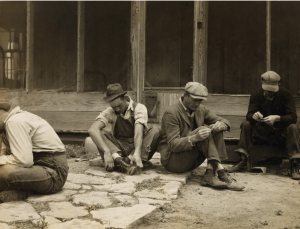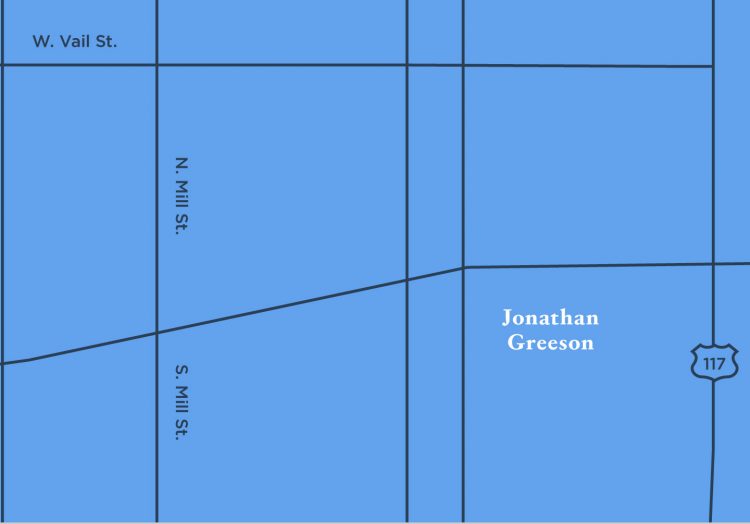Striking for independence.
I’m not a fan of strikes or any protests if I’m being honest. Sure, I see their value and how they need to happen, but I wish there was a better way. With the technology we have today there has to be a more efficient way to negotiate.
Please understand I am always sympathetic to the American worker. I hope that all of the strikes end soon with acceptable deals for all parties. More than anything I long for a time where the American worker is no longer a pawn in someone else’s game.
I am so passionate about financial planning because I believe everyone can achieve a personal level of financial independence. Financial independence occurs when work and the payment received for that work become a choice and not necessity.
Where we lose our way is that, for some reason, our society thinks there are only two types of Americans: The destitute and the super-rich. Personally, I believe you can still live a great life as a “middle class” American.
Granted, it won’t be easy and requires some focus, but it’s my job to help with that part.
I think a lot of our financial struggles come from not defining our goals. 
Marketing experts have done amazing jobs making all products desirable. For example, I don’t like coffee, but it sure looks tasty in commercials! There isn’t enough money in the world to satisfy all of our desires.
That doesn’t mean we should settle and not be ambitious, but it does mean we have to be disciplined. If we spend our entire life desiring everything, we likely end up with nothing.
I enjoy stories like Robin Hood. The whole idea of a hero helping the downtrodden believe in a better future just speaks to me. However, I believe the stories are more than just the fight between the rich and the poor. It is about all people having the opportunity to build a better life.
My favorite movie version is when Russell Crowe plays Robin Hood. I love the part when the king is addressing an angry crowd. The king says, “What do you want me to do, give every man a castle?” Robin Hood answers, “To an English man his home is his castle.” Then the crowd roars!
We all have different dreams and different visions of how it looks to live a successful life.
Unfortunately, as we search for that life, our material desires can distract us from our big picture. We then become frustrated chasing those desires.
We constantly say money doesn’t buy happiness, yet we rarely practice what we preach. How often do we say we deserve this new gadget or we compare our financial situation to that of our friends? Don’t feel bad, I do it too.
After all our economy is driven by consumer spending, so it’s our duty to spend, right? To a point, yes! However, we also have a responsibility to save for a rainy day and our future.
Looking specifically at the recent strikes, I pray that the strikers planned ahead for the event. Writers, actors, and autoworkers had to know their current contract was expiring. As their industries are evolving, it is pretty obvious the way they’re compensated needs to evolve as well.
Hopefully, negotiations were ongoing before the strikes, but they may have been like the government. You know, push things down the road for a while until you reach a hard deadline and everything has to shut down. Yes, read that previous sentence sarcastically.
When there are strikes, who is right?
We spend too much time trying to choose sides. Then we try to convince others to join our side by playing the victim and portraying our opponent as the villain. When it comes down to it though, how does the argument help you as an individual? Does the anger and noise bring you any closer to financial independence?
What if it could? What if these strikes are an economic indicator? In a consumer driven economy, maybe the consumers are telling us something more by striking.
 When I think about strikes and hardships over money, I think about the Great Depression. Calm down I’m not forecasting a depression, but I do like to reflect on that era. I think it’s helpful to remember struggles, so that we can appreciate our blessings.
When I think about strikes and hardships over money, I think about the Great Depression. Calm down I’m not forecasting a depression, but I do like to reflect on that era. I think it’s helpful to remember struggles, so that we can appreciate our blessings.
Another great Russell Crowe movie is Cinderella Man. It’s an inspiring movie about a boxer during the Depression. I think it’s one of the best movies depicting the struggles faced by families during that time.
When I think of workers on strike, that’s what I envision. Those workers weren’t only wanting more money or better benefits, they were hurting. They wanted to feed their families and keep their homes warm.
Why are workers on strike?
Instead of only focusing on right or wrong, rich or poor, maybe we should ask if today’s strikers are trying to send the same message? Inflation has reduced our purchasing power, supply of medicine and other products still cannot meet demand, and retail stores are reporting record levels of theft. All of these things tell me the consumer is struggling.
Let’s not forget student loan payments are starting again after a 3 year break. With all of the natural disasters occurring around the world insurance companies can be forced to raise rates. Plus, those disasters can definitely impact farmers by destroying crops. Less supply means inflation on food could be around even longer.
As with most of life’s problems we can either complain or prepare. I think preparation and planning is much more productive.
Can strikes present an opportunity?
There can be opportunity in struggles. Although it sounds absurd, sometimes the best time to invest is when the market is struggling. For the long term investor, an economic downturn can be the time that ends up giving them the highest returns.
Remember, we invest to reach a certain goal, but we have to ride the waves in order to reach that destination. A downturn in the market can be especially valuable when the long term investor has limited funds with which to invest. This is where dollar cost averaging flexes its muscles.
Let’s look at an example. I encourage all of my clients to contribute to their investment accounts monthly. By contributing $500 a month into an IRA, you’re investing $6,000 a year. If $500 is too much, maybe $200 is possible.
The amount is less important than the consistency of the investment. Sticking to the plan is the priority.
Let’s say your investment fund is currently valued at $20 per share. Your $200 buys 10 shares. You continue your monthly contribution as the market goes down.
Next month your $200 buys 20 shares. The following month your $200 buys 40 shares. Seeing red arrows in your portfolio is difficult, but you are disciplined and continue your monthly contributions.
contributions.
Eventually, the market recovers. Your fund is now back to its initial value of $20 per share. At first glance you are relieved to finally return to the breakeven point, but then you look at your total account value. You happily realize the account is larger than you thought because your average cost per share is much lower than the current share price.
Dollar cost averaging allowed you to buy more shares for the same monthly contribution. Similar to when a retail store has a special sale, you were able to buy portfolio shares at a discount. When the market recovered, your discipline was rewarded.
The concept of dollar cost averaging is simple enough, but it’s extremely difficult to implement. Dollar cost averaging goes against our very nature because we have to keep contributing while losing, but that’s exactly why it works. It’s a good idea to have a financial planner encouraging you through this process.
Protests, worker strikes, and government shutdowns should not distract you from your big picture.
My job is to keep you on a track to reach your long term goals. When the money we have to invest is limited, I believe dollar cost averaging and time are two of our greatest tools in building your financial future. We shouldn’t be afraid to use them.
Will there be more strikes? Will we face more struggles? Will the economy slip into a recession? Absolutely! Life can be hard. Recessions can happen because the economy goes in cycles.
Unfortunately, there is no way to know exactly when the recession will occur or when the markets would react. We don’t even know if the market would react. After the expansion and bull market that started around 2009, the market may be relieved to see the economy behaving normally. I know I would be happy to see that!
Ironically, the uncertainty of the market brings us great knowledge of how to invest. We all know we should buy low and sell high, but we are paralyzed by the fear of being wrong and end up doing nothing. I say we embrace that fear and uncertainty! Email me.


